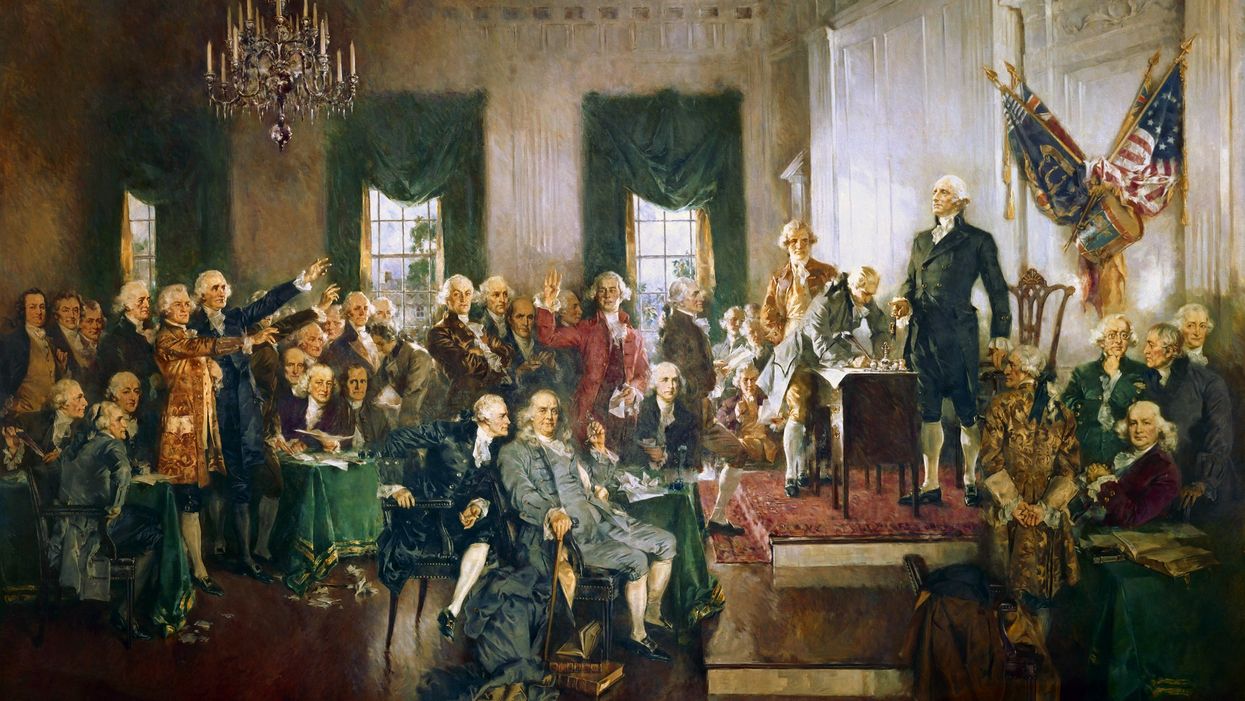Skinnell is an associate professor of rhetoric at San José State University, the editor of "Faking the News: What Can Rhetoric Teach Us about Donald J. Trump" (Societas) , and a fellow with The OpEd Project. a nonprofit that promotes more diversity among thought leaders
President Trump continues to be the subject of a string of ever-more shocking headlines. Just in the last few weeks, we learned how he reportedly disrespected the military and its leaders, how he admitted to misleading Americans about the coronavirus, and how his top officials allegedly altered intelligence reports about Russian disinformation and white supremacist terrorism to make them seem less threatening. (And that was all before the extraordinary reports about his taxes.)
As much as all the headlines tell us about Trump, they also tell us two important things about democracy. First, American democracy may be under attack but it is not yet destroyed. While the president's authoritarian aspirations are "abundant and unmistakable," he has yet to fulfill them, which is clear from the administration's efforts to downplay, deny, and disregard the headlines. Trump still has to appeal to voters; he can't just enforce support.
Second, the headlines provide a critical reminder about our civic sphere: As a political system, democracy is fundamentally built on disagreement, conflict and argument.
This may seem like an odd claim at a time when good democracy is much more frequently tied to the process of rising above our differences. Indeed, many Americans claim to want civility in their politics. In 2016, more than 80 percent of Americans "expressed disgust" over the acrimonious presidential campaign. In 2019, 83 percent of Americans "called divisiveness and gridlock 'a big problem.'" So it is clear many people view disagreement, conflict and argument as obstacles to democracy.
They're wrong.
Counterintuitive though it may seem, they are key to democracy. Democracy assumes that people have different interests and perspectives, all of which can be legitimate.
When the Constitution was written in the 1780s, for example, the founders organized conventions to discuss what should be in the document. That is, there were formal meetings to facilitate disagreement, conflict and argument.
In many cases, attendees had legitimate disagreements about what should be the new federal government's roles and responsibilities. Delegates from the large and populous states, for example, arrived with expectations often different from their colleagues from the small and more parsley populated states. Northern and Southern, rural and urban, coastal and interior, poor and wealthy, and so on — people representing these perspectives, and their many possible combinations, had to be given a chance to weigh in. Without compromise that addressed everyone's needs to some degree, the Constitution couldn't have been ratified.
In a democracy, if everyone has a voice and everyone's perspectives are legitimate, then disagreement, conflict and argument are inevitable. Ideally disagreements, conflicts, and arguments are polite and respectful, but that ideal has rarely been a reality. As historian Ron Chernow wrote in 2010, "the rabid partisanship exhibited by Hamilton and Jefferson previewed America's future far more accurately than Washington's noble but failed dream of nonpartisan civility."
Civil or not, democracy is designed to let people argue their differences out and come to a compromise that serves the good of the whole. In other words: Disagreement, conflict and argument are a feature of democracy, not a bug.
In fact, people who value democracy should be suspicious of political systems where these three things are absent. Silencing dissent, ensuring order and preventing argument are bright warning signs of authoritarianism.
That brings us back to the present. With authoritarianism on the rise around the world, people who value democracy should be seeking to strengthen our political systems — not by avoiding disagreement, conflict and argument, but by practicing them more effectively.
Of course, good arguments are hard to practice effectively. Ideally everyone in a democracy would get a robust education that includes civics, history and rhetoric to aid them in the task. But that's a long-term solution to a problem we need to start solving immediately.
In the meantime, we can take guidance from scholars who study disagreement, conflict and argument. In "Demagoguery and Democracy," rhetoric scholar Patricia Roberts-Miller advocates for public discourse about policies that favors "inclusion, fairness, responsibility, skepticism and the 'stases.'"
That is, people who want to participate in good arguments should do these five things:
- Include anyone who can meaningfully contribute.
- Apply rules fairly across all perspectives.
- Take responsibility for their claims and evidence.
- Practice skepticism about their own convictions.
- Stay on topic.
This doesn't mean arguments have to be civil, only that they should take place on a level playing field.
Roberts-Miller's guidelines are a tall order for people arguing with strangers on the internet, but they are aspirational. As we teach ourselves to engage in better disagreement, conflict and argument, we can start by evaluating how well our candidates and elected officials uphold these aspirations. If they can't do it effectively, they shouldn't get our votes.



















Trump & Hegseth gave Mark Kelly a huge 2028 gift